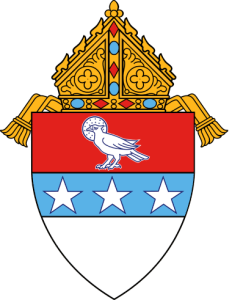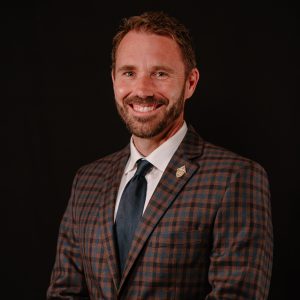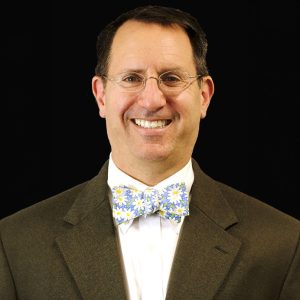The seed you plant today will provide comfort, nourishment, and shelter for future generations.
Invitation to Give and Support the Diocese of Nashville
The Diocese would like to invite you to explore how your support can help the church have the resources it needs to share the Good News with future generations. Donations to the Church can be transformative. It can be your way to make your legacy Christ-centered and to apply biblical principles. Being intentional with your estate planning can also safeguard resources for your family, minimize taxes, and even provide regular income for your own retirement.
For those who are witnesses to the glory of Christ, the past, present and future are inextricably linked. For many, donating a portion of their estates is a remarkable way to help share the Gospel.
The Diocese of Nashville encourages donors to talk with their independent advisors about all gift options outlined by the Office of Stewardship and Development.
Please take a moment to go through our resources to learn more about how you can create a legacy through your estate plan.
At any point in your journey, the Office of Stewardship and Development is ready to assist you.
Ashley Linville
Chief Development Officer
ashley.linville@dioceseofnashville.com
615.645.9768

Frequently Asked Questions
Planned Giving Information
Donors who have a plan in place for their giving often see their relationships with the Church strengthened as they become more involved. Gift planning can help ensure the successful transition of family assets and ongoing contact with the Church across generations. In tangible terms, donors may be able to reduce the amount of taxes they pay and are able to give more for greater impact. Last, there is also peace of mind knowing that a plan has been devised and in place should anything unexpected happen.
Gift options include several gift “vehicles” that have attractive benefits for donors and charities. Depending on the goals donors have for themselves, one or more gift vehicles may be suitable. These gifts may be administered directly by the Diocese or may be facilitated by third-party financial professionals that serve as administrators/advisors or custodians. The following descriptions and examples are popular options considered to be “Legacy Gifts” or “Planned Gifts”.
Go to the Gift Options page to see all options or click on a specific gift option below.
The process for evaluating gift options is different for each individual and can vary according to family circumstances and the size of the gift that is being considered. Some donors know they want to give to charity with a gift size in mind, while others come to the process simply wanting to know what the options are. As long as there is a charitable interest on behalf of the donor, the process of gift planning can bring joy and peace of mind.
Talking with one’s independent advisors and the Office of Stewardship and Development helps focus on goals and options that are most compatible. In some cases, giving back to charity becomes easier as donors become more knowledgeable of the choices that are available.
The Office of Stewardship and Development encourages all potential donors to consult their independent advisors as part of the process. There may be occasions where the Diocese staff can interact with these advisors to talk about specific ways gifts may be structured. The Diocese staff does not receive compensation or have incentives based on the amount of the gift or assets under management.
Several of the gift vehicles are intended to allow for more than one charity to benefit, such a Donor Advised Fund which gives flexibility on where and when checks are written. Donors may also specify more than one beneficiary in a will, through a retirement plan or life insurance, or through a trust. Multiple beneficiaries for those who are very philanthropic are common.
The main difference between these two terms is whether an asset has transferred ownership. If a gift is revocable, it can be changed, and no transfer of the asset has occurred. If it is irrevocable, the donor has given the asset to the charity and the charity can use it as stipulated in the agreement with the donor. The tax implications of gifts that are revocable are different from gifts that are irrevocable.
For those who are beginning the process, the Office of Stewardship and Development is ready at any time to be of assistance. The Diocese offers its services at no charge to donors. Some donors know what they want, and choose to contact the Diocese to let them know about the plan that has already been put into place. Others want to let the Diocese know that a plan is of interest, and there is a chance to explore some of the avenues for support before a decision is made.
To learn more about gift options or to see a list of current giving priorities, please feel free to contact Ashley Linville of the Office of Stewardship and Development.
ashley.linville@dioceseofnashville.com
615.645.9768
The Office of Stewardship and Development wants to have strong and meaningful partnerships with all donors, regardless of who serves as the administrator. The answer to this question can vary depending on the needs of the donor and the gift type.
Sometimes it is easier to have a third-party manage a gift plan when multiple charities are to become beneficiaries. In some cases, the Diocese works with outside partners to execute the plan outlined in the gift agreement while still serving as custodian.
The functions that fall under the heading of manager/administrator/custodian include facilitating the paperwork used to transfer the asset, reporting on the investment performance of the asset, handling any investment decisions, submitting tax compliance forms, and serving as the party responsible for executing the charitable goals outlined in the gift agreement.
Donors are encouraged to contact the Diocese with questions or to learn more about options around the administration of gifts.
Gift designations can be changed at the request of the donor, and documentation typically is updated as part of this process. For donors who have specific naming opportunities tied to gifts of particular sizes, naming opportunities may change if the gift designation or gift size changes.
Tools and Resources
A gift calculator is a tool, often online, that can help anyone estimate a planned gift in real terms. If you put financial figures into the tool, you get a sense of how large the gift would be and what the tax implications would be. For example, for a Charitable Gift Annuity, you could put your age, the amount of the gift, when you want payments to start, and how many beneficiaries you intend to have. The calculator takes into account the actuarial and present value calculations for you.
Click here for a gift calculator for Charitable Gift Annuities (no contact info required)
https://legacy.catholicextension.org/giving-toolkit/gift-calculator/
“I give the Roman Catholic Diocese of Nashville (EIN: 62-0476286), a not-for-profit religious organization located on 2800 McGavock Pike in Nashville, TN 37214, the sum of $XXXX from my estate to be used for the ZZZZ purpose. If the program/LOCATION designated no longer exists or it is not practical to use the funds as designated, the board or the Diocese or its successor shall use the funds as close as possible to my original intent.”
“I give the Roman Catholic Diocese of Nashville (EIN: 62-0476286), a not-for-profit religious organization located on 2800 McGavock Pike in Nashville, TN 37214, XX% of my estate to be used for the ZZZZ purpose. If the program/LOCATION designated no longer exists or it is not practical to use the funds as designated, the board or the Diocese or its successor shall use the funds as close as possible to my original intent.”
Residual language can precede or follow either of the two aforementioned statements, making them subject to specific conditions.
“The gift I intend to make to the Roman Catholic Diocese of Nashville is to be received after the following obligations and conditions have been met: [insert specific provisions here].”
The Roman Catholic Diocese of Nashville
2800 McGavock Pike
Nashville, TN 37214
EIN: 62-0476286
Phone: 615-383-6393
Legacy Society
The Legacy Society is a celebration of donors and their generosity. Joining the Legacy Society is entirely voluntary and includes all those who have confirmed their overall intentions in writing. From time to time, there are events just for Legacy society members. The Legacy Society is one way for the Church to express gratitude to donors for their support during their lifetimes.
For donors who are considering the Legacy Society, becoming a member is also a public way to inspire others. While some donors prefer to keep the details of their donations private, many others are encouraged to see the names of those who have made similar commitments.
The Office of Stewardship and Development is delighted to serve as a facilitator for all current and potential Legacy members.
To read more about the Legacy society and it’s members, visit the Legacy Society membership page below.
Donors who are members of the Legacy Society will be listed every year in the Legacy section of the website and in annual donor reports. This is normally a different section listing from current cash donors. Donors who wish to remain anonymous may do so upon request.
Many donors in the Legacy Society find their motivation to give each year increases once they have long-range plans and have joined the Legacy Society. Legacy donors are encouraged to give annually at whatever level is comfortable to the area(s) that are most appealing.
Legacy Donors who make gifts annually are sometimes referred to as having created a “living endowment” – whereby their annual gifts function as if an endowment were already set up and returning annual income.
Every gift increases the amount of resources available to the Diocese. For some donations, donors are satisfied to know they are underwriting an existing budget. In this case, the budget for the specific area remains the same, and funds previously earmarked for that area are able to be used where they are needed most across the Diocese.
Other donors prefer to use their giving to increase or create a new budget. Often times this is to help meet a growing need at the Diocese. In this situation, the Diocese puts the donation with any existing funding, and then adds programs and services in line with the parameters of the donation.
Whether sponsoring existing programs or creating/extending programs, the Diocese welcomes the chance to talk with you to ensure you have the impact you wish to have.
Additional Questions
If you do not see your question here, please contact Ashley Linville, Chief Development Officer at ashley.linville@dioceseofnashville.com or call 615-645-9768.
Do you want more information?
We’re here to help.

Ashley Linville
Director of Development
ashley.linville@dioceseofnashville.com 615.645.9768


